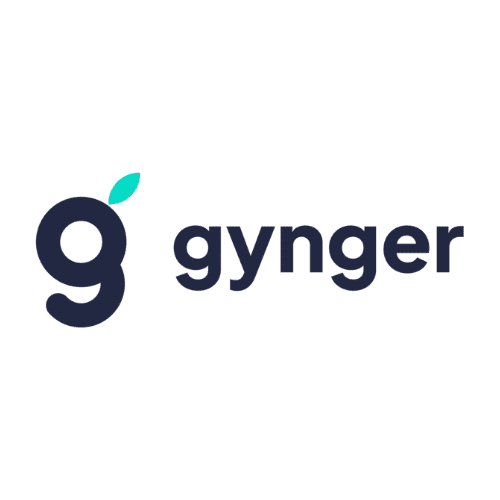As software budgets expand, they become more vulnerable to reductions in other areas. One study found that clients are investing 53% more in software-as-a-service (SaaS) licensing now than they were five years ago. Fifty-seven percent of IT departments surveyed by Workato in 2022 reported being pressured to drastically cut software spending at their firms due to directives from upper management.
Reducing software spending is a challenging but necessary objective in organizations where whole departments depend on specialized software. Mark Ghermezian says that company financing may help stop layoffs before they happen. However, these are not just old loans; rather, they are loans for businesses intended to be used to acquire software and infrastructure.
See also: Facebook to launch a version of Instagram built for children under 13
An Introduction to Gynger
Gynger, founded by Ghermezian and situated in New York City, is a financing marketplace where businesses may buy the software and services they need to build their unique technology stacks. Upper90 provided Gynger with $10 million in loans. In contrast, Upper90, Vine Ventures, Gradient Ventures (Google's AI-focused startup fund), m]x[v Capital, Quiet Capital, and Deciens Capital provided the remainder of the $11.7 million in initial capital.
In the past, Ghermezian established Braze, a multichannel marketing platform housed in the cloud designed to enhance client interaction. He claims to have seen firsthand the challenges that sellers and purchasers face while attempting to acquire software.
Ghermezian has reportedly described his personal experience with the flaws of the business-to-business SaaS sector. "As an entrepreneur, you raise a ton of money and have to spend a ton of money right once to build up your IT infrastructure. We sought a method to integrate software and funding to better assist the startup community in securing cutting-edge applications and sustaining healthy cash flow.
A primary offering from Gynger, the company's underwriting process for funding IT investments is fully automated. When it comes to paying for SaaS, many businesses would like to pay Gynger later instead of immediately. The firm offers a line of credit and debt finance to these businesses. (Ghermezian claims they will be financed by Gynger's newly-raised debt, even though Gynger may and has made loans off its balance sheet.)
According to Ghermezian, two of Gynger's best features are its capacity to help consumers save money by allowing them to pay for large purchases over a longer period and to get early payment incentives from merchants. Gynger also offers a consolidated dashboard for SaaS costs, allowing for a single invoice at the end of each month.
Gynger allows for some degree of personalization. Customers may choose which contracts they want Gynger to finance on their behalf, and they have options, such as paying suppliers in full for the year in return for a discount or spreading out current debts. According to Ghermezian, the Gynger algorithm considers a company's cash on hand, burn rate, and income to estimate how much funding it may get.
Gynger’s Competition & Work Model
As macroeconomic headwinds have prompted corporations to seek out nondilutive types of funding, the alternative financing sector has boomed. Gynger faces stiff competition from other fintech, according to Ghermezian, such as Pipe and Capchase. These companies provide alternative forms of financing to traditional equity and venture finance to firms. He does, however, point out that many lenders emphasize acquiring receivables (i.e., monies owing for products and services) and lending against yearly recurring income. Gynger does not need companies to have the income to qualify for a loan, but it does consider revenue.
Gynger is useful for businesses of all sizes, but it has proven especially fruitful for startups in the pre-Series B stage, as Ghermezian put it. Access nondilutive cash, buy the software and infrastructure you need to operate your business, and set your payment terms with Gynger.
It may seem dangerous to provide credit to a business that has yet to generate income. Furthermore, Gynger's website promotes the platform as a tool for retailers to upsell consumers by offering attractive financing options to encourage more expensive purchases.
Darian Shirazi, a partner at Gradient Ventures, disagrees and thinks Gynger is cautious with his funding.
According to Shirazi's comment, "the per-seat yearly billing software model is shifting," and this is why Gynger now provides more options for businesses to purchase software that works for their budgets. Many have tried to improve the underwriting model for software financing. Still, the true multi-billion dollar potential lies in providing a variety of payment and finance procedures to suit individual customers. We're excited to work with Gynger since it's changing how people pay for and buy the software.
With the predicted growth of global IT expenditure to $4.5 trillion by the end of 2022, loans for software spending are a rather safe business model bet, hazards considered. That's enormous and expanding the market potential.
According to Ghermezian, Gynger has funded SaaS contracts with suppliers, including Airtable, Google Cloud Platform, Amazon Web Services, Slack, and Zoom ranging in size from $1,000 to $1 million. Although he would not disclose Gynger's sales, he did say that the company's 13 employees enjoy a "very strong" cash flow.
Featured image: Gynger
Subscribe to Whitepapers.online to learn about new updates and changes made by tech giants that affect health, marketing, business, and other fields. Also, if you like our content, please share on social media platforms like Facebook, WhatsApp, Twitter, and more.

